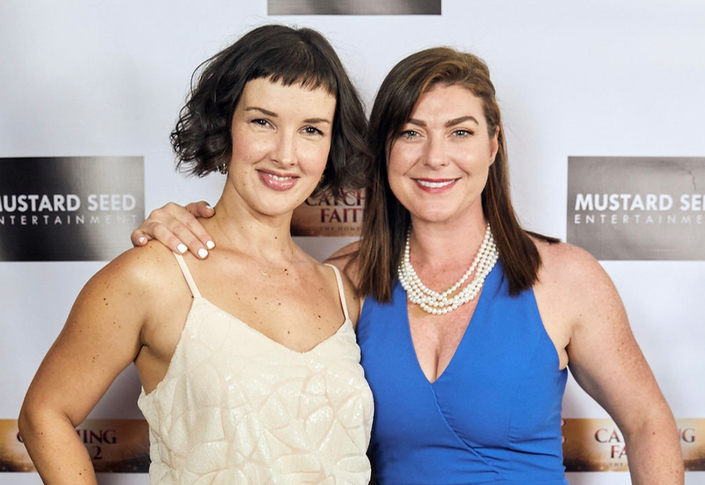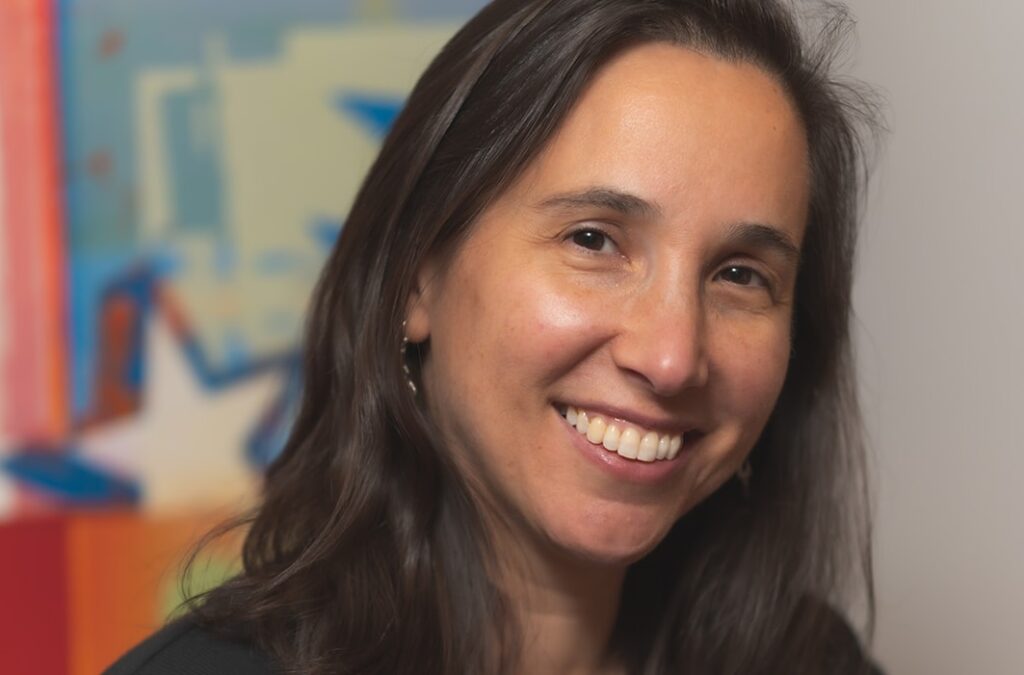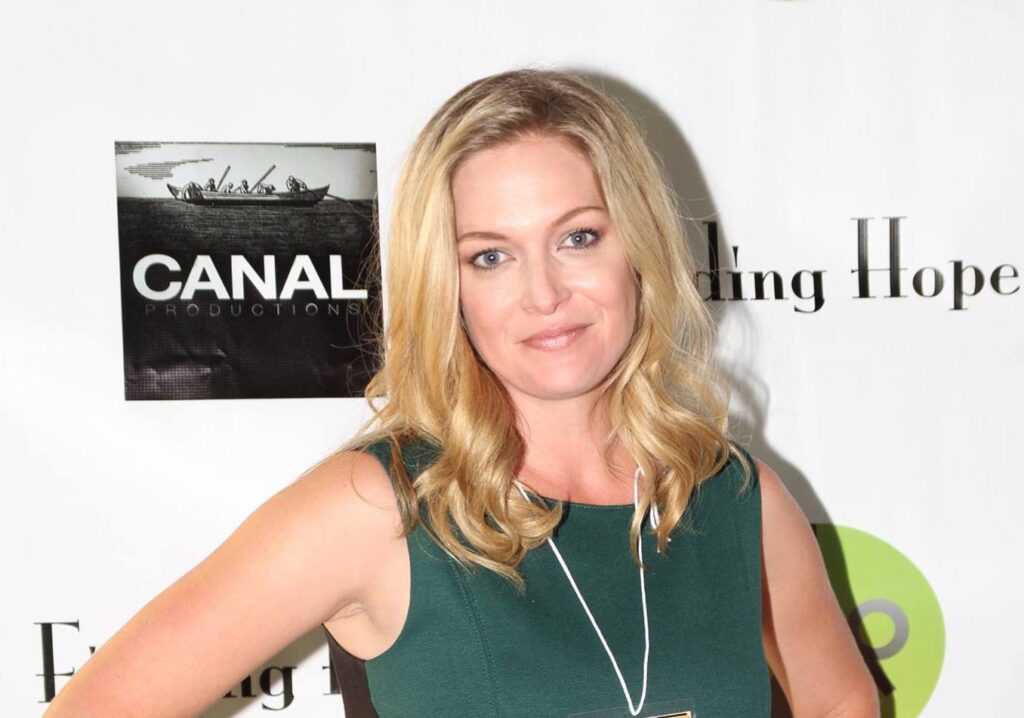By Alexandra Boylan and Meredith Riley Stewart
After two years, we were all systems go. The endless meetings, courting of investors, and flying from Los Angeles to Georgia for scouting trips had culminated in our female-driven family film “The Inheritance” being officially greenlit. Our core team — us two producers, director John K. D. Graham, cinematographer Rick Galli, and co-writer/production designer Andrea Polnaszek — solidified our Columbus, Georgia, location in February 2020.
We were 70 percent crewed up. Our casting directors Lisa London and Catherine Stroud were talking with agents. We were set to begin principal photography April 20. Everything was going just as we predicted and then, boom: the unpredictable. COVID-19 hit. After an aimless few weeks, our core team started to meet every Friday, via Zoom of course, to piece together a game plan to move forward in an industry at an utter standstill.
Every time a new white paper was released, we pored over it. We took the initiative to develop our own protocol to prove to the cast, to each crew member, and to SAG-AFTRA that we were laser-focused on health and safety on set. With the help of line producer John Schrad, we painstakingly pulled threads from suggested guidelines to weave together our own, outlining items department by department, day by day, sometimes even hour by hour.
Testing presented the largest challenge, but one we saw as the foundation for safety. In early June, we bought serology kits for our 40+ crew — which were later deemed ineligible by SAG-AFTRA. Thankfully, the supplier refunded our money. The frustrating lack of transparency as to what was deemed “qualified” or not plagued our early attempts at compliance. Almost everything in “The Safe Way Forward” — a joint report released in June by the DGA, SAG-AFTRA, IATSE, and Teamsters — is a recommendation. We understand it’s vague because the science is changing so often, but to not update it with specifics costs productions time and money. So, antibody tests are out? Antigen tests, who knows if that’ll be accepted? PCR is the gold standard, but with its severe lag time in results, how do you meet the “test within 24 hours of reporting to set” requirement?
We went back to the drawing board, and found a clinic in Georgia that developed a schedule of PCR testing, plus some fill-in-the-gap rapid antigen tests, to cover our four-plus weeks in town. The cost of over 300 testing kits sent us scrambling for funds. The clinic introduced us to a medical professional who joined our crew to oversee all things COVID. Namely he was able to administer the tests on set. This was a game changer.
As pioneers in pandemic-era filmmaking, we both had knots in our guts the weekend prior to filming when the entire cast and crew were initially tested. The “money faucets” had been turned on; there was no getting it back at that point. Then we received the all-clear: no positive tests!
Welcome gifts on set Day 1 were fabric masks and refillable hand sanitizers outfitted for a belt loop. Every morning, every person filled out a wellness survey via email and their temperature was taken upon arrival.
As recommended in the “Safe Way Forward” guidelines, we opted to utilize the Zone System for our set. Zone A is where the most vulnerable work: actors who perform without masks, crew members in close proximity to them like sound professionals, hair and makeup, wardrobe, the director, etc. People in that zone tested three times per week, while Zone B crew — all those not essential to be on set while actors were working — tested once per week. Because our COVID Compliance Officer was a medical professional who had the rapid result machine on-site, any new day-player was tested on set before entering our bubble of a location.
We were very conscious that our bubble would burst when people left the set. Zone C, or “the outside world” — i.e. homes, hotels, wherever people employed in the production go when they’re not working — loomed over us, especially in an open-for-business state like Georgia. We could only suggest crew self-quarantine for the duration. But our whole team was eager to work, eager to keep their jobs, eager for another negative test to keep the cameras rolling another day. The level of respect for each individual soared. Every person understood that keeping themselves healthy meant keeping everyone healthy.
At picture wrap, we had performed 342 tests on our set and never had one positive result.
COVID has changed everything. The upcoming release of our newest film, “Switched,” which Alexandra produced, has been totally reimagined — no premiere, no red carpet. But hopefully we can nuzzle into the homes of families who are yearning for fresh content for their kids.
Because of our protocol’s success, Meredith has partnered with our doctors to offer a turnkey solution to productions looking to replicate our model. This comprehensive approach includes on-site testing, department-specific protocol design, risk assessment by medical advisors, and training of cast and crew on all elements of how to stay safe during pandemic-era filmmaking.
“The Inheritance” has successfully moved into post-production. Our editor, Lex Benedict, is piecing the movie together. We’re back in LA, back in quarantine, back to what has become everyday life in 2020. As per usual, we have those “post-show blues” but at the same time, it’s a huge relief to be finished.
The production only worked because everyone above-the-line agreed to wear multiple hats and pull extra weight. Meanwhile, everyone below-the-line agreed to integrate these new requirements, to put safety over comfort, and to redefine their positions for a compliant set. People were adaptable, and that’s something we’ll remember on all our projects moving forward.
“The Inheritance,” starring Mena Suvari and Jaleel White, will be available in 2021. “Switched” is now available on all streaming platforms. PiperMed can provide on-set COVID testing solutions today.
Alexandra Boylan is the founder of Mustard Seed Entertainment, whose focus is creating female-driven films. Her films include “Catching Faith” 1 & 2, “Wish For Christmas,” “Switched,” “Home Sweet Home,” “At Your Own Risk,” and “The Inheritance.” Her book “Create Your Own Career in Hollywood” can be purchased on Amazon.
Meredith Riley Stewart is an LA-based producer and co-stars in “The Inheritance.” Meredith produced Women In Film’s first-ever digital series, “Flip The Script,” a comedy about gender parity. Her digital series “AutocorrectFU” was featured on Funny or Die and Whohaha, and has been curated onto Amazon Prime Video. She currently serves as a WIF Peer Mentor.







